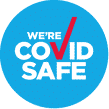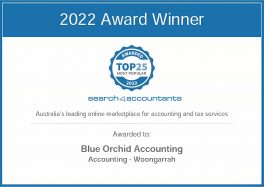When it comes to tax, sole traders and companies have similarities in their tax and reporting requirements. At the same time, there are key differences you need to be aware of. Read on as we unpack the differences between the two.
Tax-free threshold
Sole traders are subject to business tax as part of their personal income. They will need to pay tax on any income above the threshold of $18,200. In contrast, companies pay tax on every dollar they earn.
Tax Rates
Sole traders are required to pay tax at the individual income rate. Companies are taxed at a rate of 30%, but different rates might apply if a company is a base rate entity.
Lodging tax returns
If you are a sole trader, you must lodge an individual tax return each year. If you operate as a company, you’ll need to lodge a company tax return. These returns need to show your company income, any deductions and the sum of income tax your company is required to pay. Your company is liable to lodge its own tax return and pay tax on any income. As a director or company employee, you’ll still need to lodge an individual tax return.
Capital Gains Tax (CGT)
If you are a sole trader and you made a capital gain – such as a profit from a sale – on an asset you owned for at least a year, you may be able to reduce your capital gain through the discount method, the indexation method or at least one of the four CGT concessions offered to small businesses. For companies, the discount method usually does not apply – though it can factor into a small number of capital gains made by life insurance providers. You must use the indexation method for your company if it is not a listed investment company and if it fulfils the particular conditions.
Small business entity concessions
You’ll be pleased to know that small business tax concessions are available, regardless of business structure. You classify as a small business entity if your business operates for all or part of the income year and makes an aggregated turnover of less than $10 million. If you qualify, you may be entitled to concessions on your income tax, GST, pay-as-you-go (PAYG) instalments and fringe benefits tax.
Taxes and superannuation
The taxes and superannuation you’re entitled to pay and report will be determined by your business activities. If your GST turnover reaches $75,000 or more, if your business involves the provision of taxi or limousine travel for passengers, or if you want to claim tax credits on fuel, you will need to register for goods and services tax (GST).
You may need to pay income tax through PAYG instalments. If you have employees, you will be required to collect PAYG withholding amounts, which you will need to give and report to the ATO. You’ll also need to pay contributions to superannuation for any eligible employees, as well as fringe benefits tax if required.
Payroll tax
If you have employees either as a sole trader or company, you may need to pay payroll tax. This tax is determined by your particular state or territory and functions as a tax on the wages you pay your staff.
Get in touch today
Blue Orchid Accounting is committed to providing our valued Central Coast clients with outstanding taxation and accounting services. We proudly offer honest, friendly advice designed to help you make the best decisions for your finances and your future. Contact us today on 1800 008 664.

Since 2011, Blue Orchid Accounting has been providing clients throughout the Central Coast with a comprehensive range of taxation and accounting services. We strive to provide friendly, straightforward advice, helping ensure you’re enabled to make smarter financial decisions and further safeguard your wealth.













